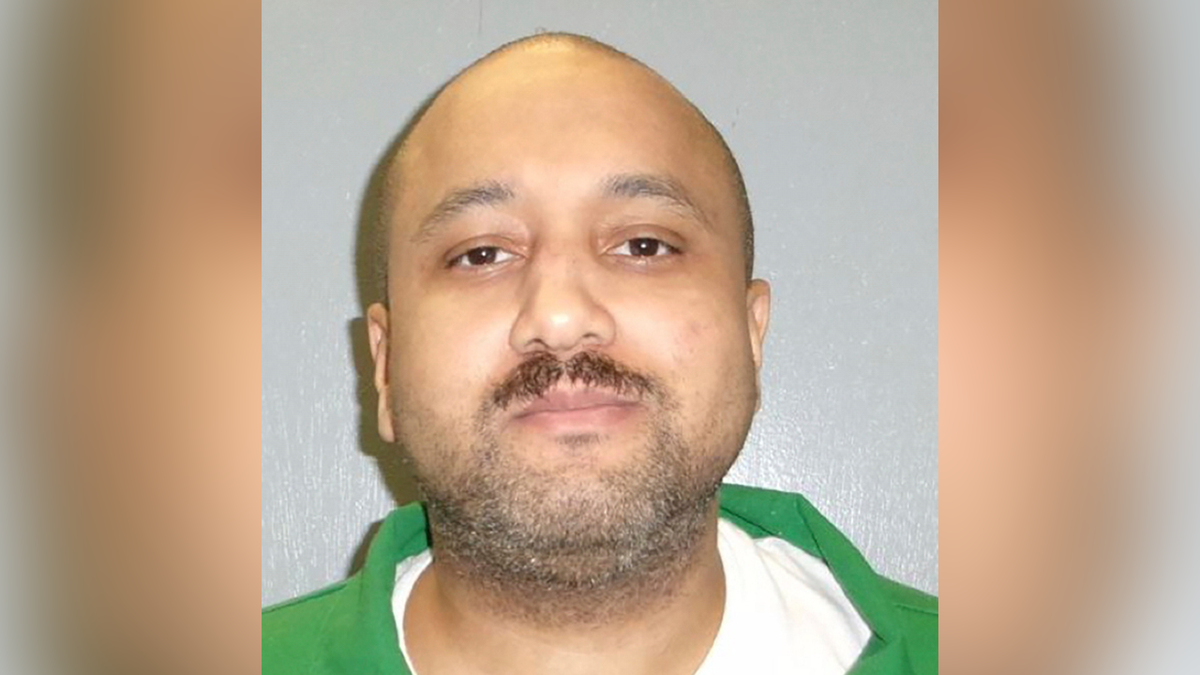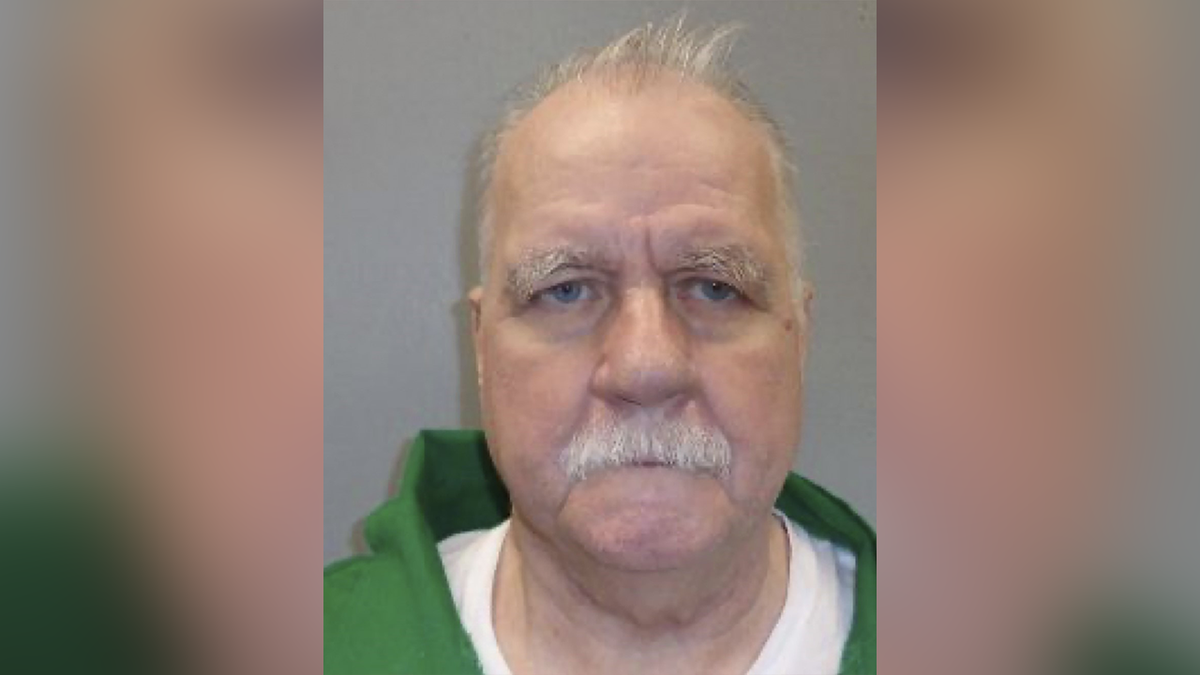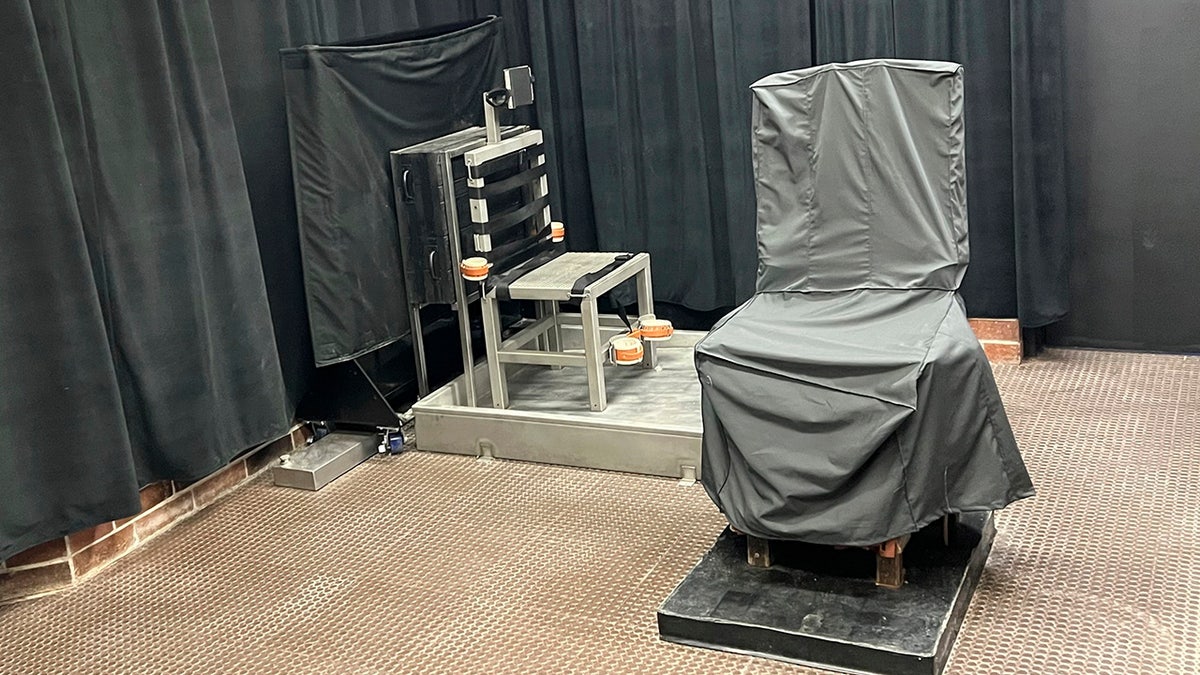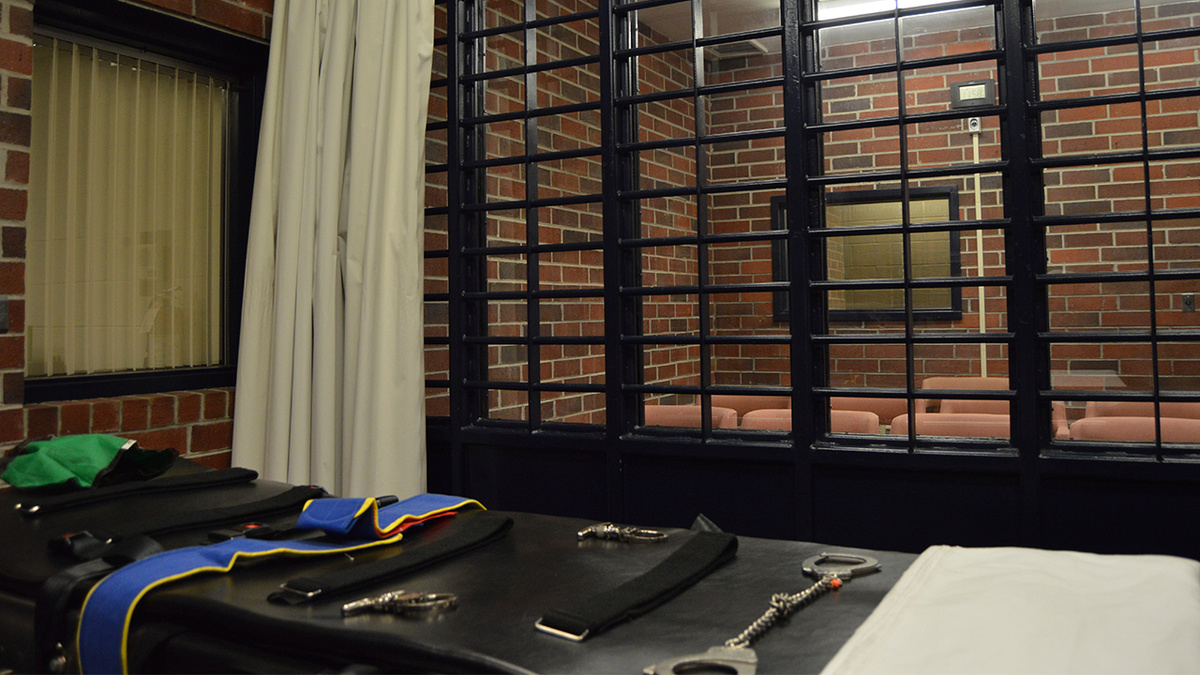EXCLUSIVE: As a South Carolina man on death row prepares to be put to death by firing squad, his lawyer argues that the case is a matter of “appropriate punishment” rather than guilt as he seeks to stop his client’s execution.
Mikal Mahdi, 42, is set to be executed on Friday at 6 p.m. at a prison in Columbia after pleading guilty to the 2004 killing of an off-duty police officer.
In an interview with Fox News Digital, Mahdi’s lawyer, David Weiss, said his client’s case raises questions about “appropriate punishment” given the inmate’s life struggles and growth as a person in the years since the crime was committed.
“It’s a question of what’s the appropriate punishment, given the life experiences of the person, everything they went through and the reasons why things ended up as they did, with really tragic crimes being committed,” Weiss said. “But almost without exception, what you see is when tragic crimes are committed, the person who committed them also went through incredibly difficult life experiences that led them down that path. And that’s what happened here.”
SECOND SOUTH CAROLINA INMATE CHOOSES EXECUTION BY FIRING SQUAD

Mikal Mahdi, 42, is set to be executed on Friday at 6 p.m. at a prison in Columbia. (South Carolina Department of Corrections via AP)
Mahdi is a “much different person” now than when he committed the capital crimes at age 21, Weiss said, saying that his client was a “confused, angry kid” at the time who has since grown up and matured a lot. Weiss explained that Mahdi is now an “intelligent, thoughtful person who spends as much time as he can reading and learning about the world.”
Weiss said Mahdi accepts responsibility for what he did and knows what he did was horrible. He said Mahdi understands that he must be punished for his crimes and that he could be executed.
But Weiss warned that if South Carolina carries out the execution, it will be killing someone who is a “very different person from the person who committed the capital crimes in the first place.”
Mahdi would be the fifth person to be executed by firing squad in the U.S. since 1976 – with the first three carried out in Utah – and the second in South Carolina after Brad Sigmon, 67, was put to death using that method last month. Sigmon was the first person to be executed by firing squad in 15 years.
Given the choice of lethal injection, electrocution and firing squad, Weiss said Mahdi chose the lesser of three evils. He noted that lethal injection was previously believed to be more humane before it was later determined to be “quite torturous” and that electrocution is cruel since a person is being “cook[ed] from the inside out.”
“If the execution goes through, they’re going to fire three high-powered rifles at our client’s chest,” Weiss said. “It’s a horrible thing for him to go through. It’s a horrible thing to have to witness for everybody involved, from the legal team to witnesses to prison staff who have to carry it out.”
In the death chamber, Mahdi will be strapped to a chair and have a hood over his head and a target over his heart. Three shooters will fire at him through a small opening about 15 feet away.
Bo King, a lawyer who represented Sigmon, detailed what he witnessed when his client was put to death on March 7.
“Seeing how he was restrained, he was tied to the chair with his arms pulled back far enough, almost as if someone had him in a wrestling hold, holding his arms behind his back. And then with his chin and jaw secured to the chair with some kind of strap,” King told Fox News Digital.
SOUTH CAROLINA SETS DATE FOR 5th EXECUTION IN UNDER 7 MONTHS

Brad Sigmon was executed in March for beating to death his estranged girlfriend’s parents in Greenville County in 2001. (South Carolina Department of Corrections via AP)
“What has stayed with me and continues to trouble me is how he reacted after being shot, specifically watching his right arm pull so frantically on the straps, tying it to the chair,” he continued. “And every muscle in his arm popped out, and it looked like an anatomical drawing. It just looked like he was trying so desperately to pull his arm free and cover the hole in his chest.”
King said he remembers watching the wound open in the middle of Sigmon’s chest.
“It’s a difficult sight to reconcile in real time,” he said. “You’re watching it happening. You’re thinking, I just saw a hole open up in that person.”
King also explained that he believes it is inhumane to tie someone down to kill them, emphasizing that “the amount of damage that I saw done to Brad’s body is beyond anything that I would consider.”
Three other prisoners have been put to death in South Carolina since the state resumed executions in September. Freddie Owens on Sept. 20, Richard Moore on Nov. 1 and Marion Bowman Jr. on Jan. 31 all died by lethal injection. Sigmon chose the firing squad due to concerns about the prolonged suffering the three other inmates had faced when they were killed by lethal injection, King said.
In Mahdi’s case, Weiss expressed concern that his client would be executed “even though he never had the fair trial that the Constitution is supposed to guarantee.”
“The whole question at his trial was what punishment did he deserve? In order to make a reasoned decision about that, the trial judge needed to be given all the information about who Mikal was, what he went through in his life, tragically,” Weiss explained.
Earlier this week, South Carolina’s highest court rejected a final appeal from Mahdi’s lawyers. His lawyers argued that his original attorneys made a poor case in attempting to spare his life and failed to call on relatives, teachers or other people who knew him in his sentencing defense, but the state Supreme Court ruled that many of those same arguments had been made in previous unsuccessful appeals.
During his trial, Mahdi’s lawyers said their client was the second son of a woman who was wedded in an arranged marriage at 16 years old. His family described a chaotic childhood, although nobody testified about abuse or mental illness.
Weiss told Fox News Digital that the trial judge who handed down the sentence was given very little information and Mahdi’s defense called a single witness who testified for just a few minutes, giving only a broad outline of Mahdi’s “extraordinarily traumatic childhood” that began when he was a toddler and extended through his early adolescent years.
“When he needed additional support at school, the teachers tried to provide it, but his dad pulled him out of school rather than allowing him to get that support for his depression, for his suicidal feelings and things just spiraled from there where he went into the juvenile prison system for fairly minor crimes, and he ends up spending thousands of hours in solitary confinement as a kid,” Weiss said.
As early as second grade, Mahdi suffered from mental despair and discussed self-harm. He already had a criminal record by the time he was a teenager, spending weeks in solitary confinement after being convicted of breaking and entering and attacking a police officer in Virginia.
“We know today in a way that we just didn’t appreciate back then when Mikal was in the system, how damaging that is to a person’s development,” he continued. “And the judge who decided what sentence Mikal should have was told almost nothing about his story.”
CONVICTED DOUBLE MURDERER EXECUTED BY FIRING SQUAD IN SOUTH CAROLINA

This photo provided by the South Carolina Department of Corrections shows the state’s death chamber in Columbia, including the electric chair, right, and a firing squad chair, left. (South Carolina Department of Corrections/AP)
Weiss added: “That’s the real injustice here, and that’s the real outrage here.”
Mahdi stole a gun and a car in Virginia on July 14, 2004, arrest records show. The next day, he shot and killed a North Carolina store clerk as the clerk was checking his identification. A couple of days later, he carjacked someone at an intersection in Columbia, South Carolina.
On July 18, 2004, while on the run after those crimes, Mahdi hid in the shed of Orangeburg, South Carolina, public safety officer James Myers. Mahdi ambushed Meyers when the officer returned from a birthday celebration for his wife, sister and daughter, prosecutors said.
Myers, 56, was shot eight or nine times, including twice in the head after falling to the ground. A pathologist testified that at least seven of the shots would have been fatal.
Mahdi then set Myers’ body on fire and ran away. Myers’ wife discovered her husband’s dead body in the shed, which they had used for the backdrop of their wedding.
On July 21, 2004, Mahdi was taken into custody in Florida. When one of the officers involved in his arrest learned what he was wanted for in South Carolina, he thanked Mahdi for not shooting at him. Mahdi told him that the only reason he did not was because he was skeptical that he could successfully shoot two officers and their K-9 and get away with it.
While behind bars, Mahdi was caught three times with tools he could have used to escape. One was an Allen wrench and the others were homemade handcuff keys, including one that was found under his tongue at his trial.
On death row, Mahdi stabbed a guard and struck another worker with a concrete block. On three occasions, prison staff found sharpened metal in his cell that could be used as a knife.
After he pleaded guilty to murder, Mahdi was sentenced by Judge Clifton Newman, who at the time told The Post and Courier that he was not sure he believed in the death penalty, but the case became bigger than his beliefs.
“My challenge and my commitment throughout my judicial career has been to temper justice with mercy and to seek to find the humanity in every defendant that I sentence,” Newman said as he handed down Mahdi’s punishment. “That sense of humanity seems not to exist in Mikal Deen Mahdi”
Once one of the busiest for executions, South Carolina resumed executions in September after a 13-year pause caused in part by the state having difficulty obtaining lethal injection drugs due to pharmaceutical companies’ concerns that they would have to disclose they had sold the drugs to state officials.

The room where inmates are executed in Columbus, South Carolina. (South Carolina Department of Corrections via AP)
CLICK HERE TO GET THE FOX NEWS APP
The state legislature then passed a shield law allowing officials to keep lethal injection drug suppliers private. The legislature also approved the firing squad as another execution method over difficulties obtaining the drugs.
South Carolina has executed 47 inmates since the death penalty was resumed in the U.S. in 1976. In the early 2000s, the state was carrying out an average of three executions per year. Only nine states have killed more inmates.
If Mahdi runs out of legal appeals, including petitioning the U.S. Supreme Court to review the issues in the state high court’s ruling, his only remaining option would be for Republican Gov. Henry McMaster to reduce his sentence to life without parole, which Mahdi’s lawyers have already requested. But no South Carolina governor has granted clemency in the 49 years since the death penalty resumed in the U.S.
“I think Gov. McMaster has an opportunity to change that, and he should change it,” Weiss said.
A spokesperson for McMaster’s office confirmed to Fox News Digital that the governor had received the petition from Mahdi’s lawyers asking for clemency.
“As the governor has done previously, he will review and carefully consider the petition,” the spokesperson said.
Fox News Digital has reached out to the South Carolina Department of Corrections for comment.




